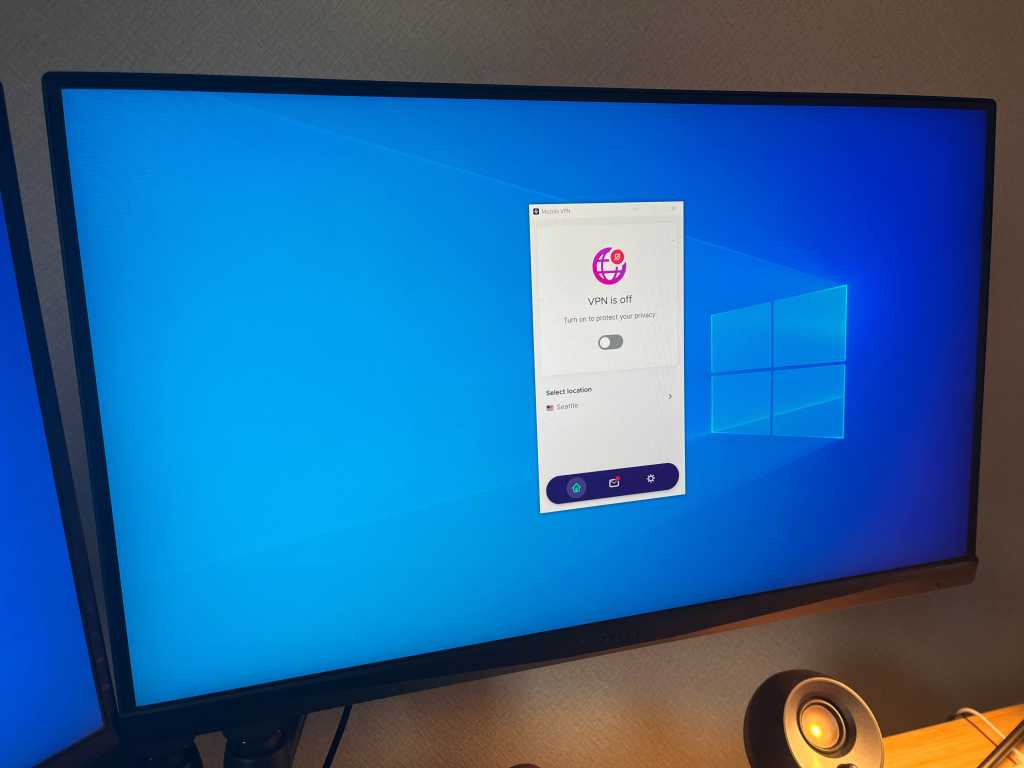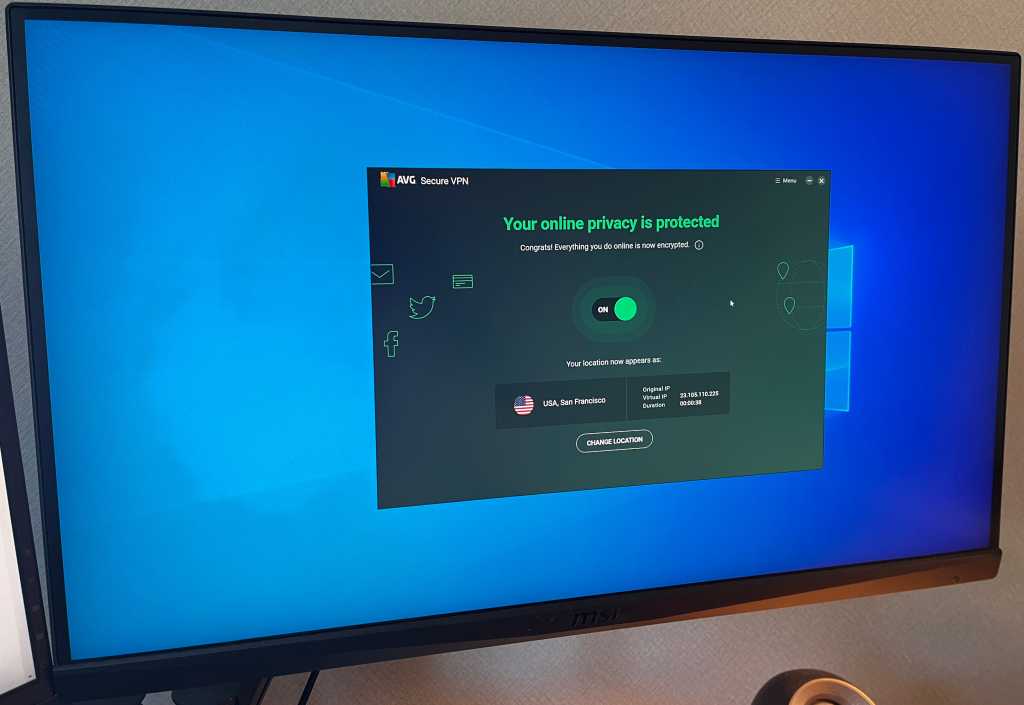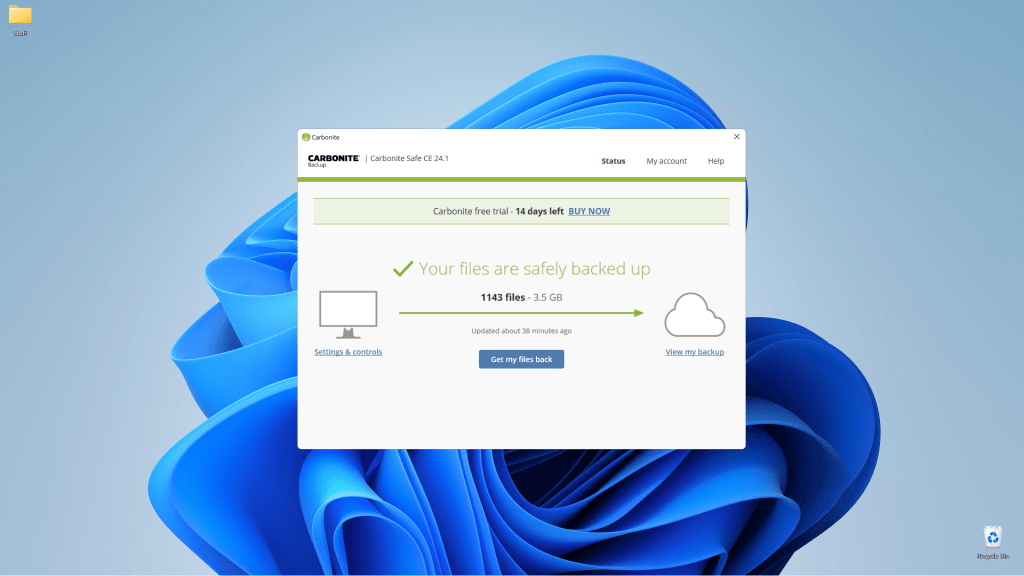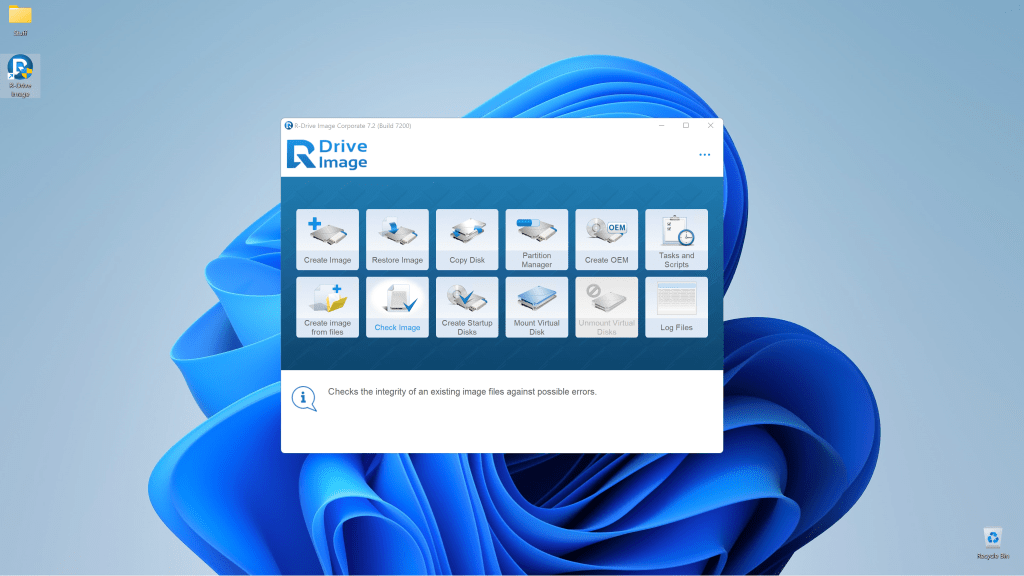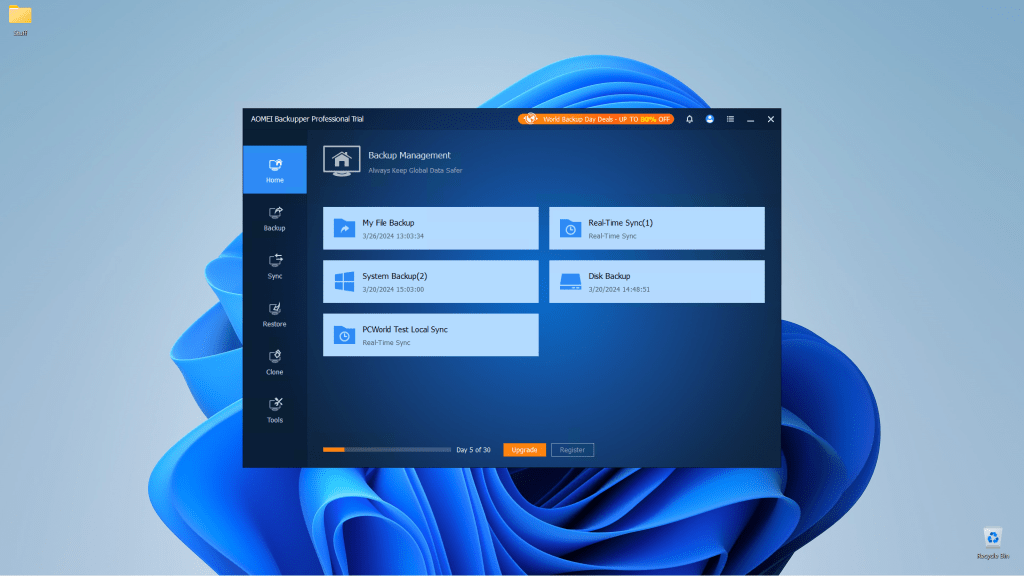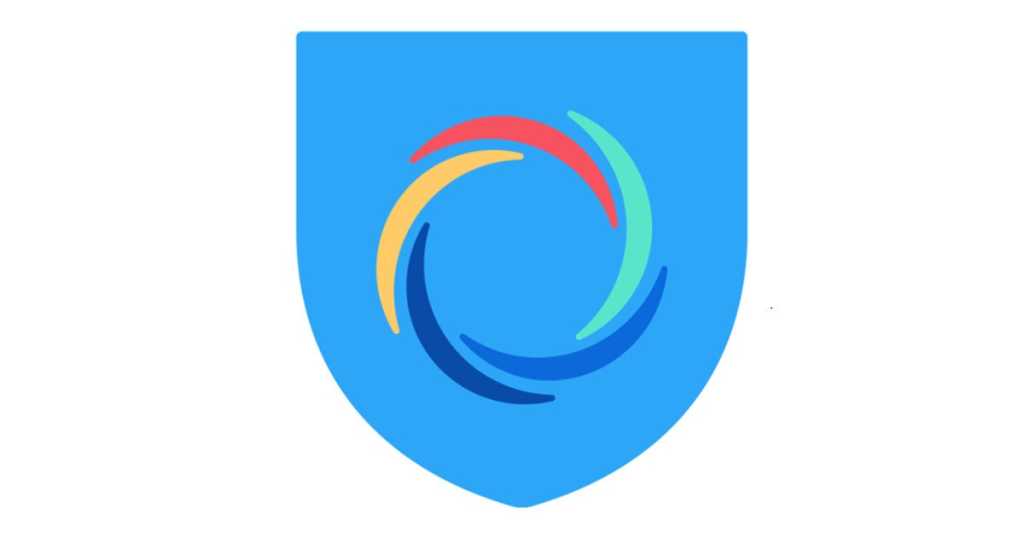Mozilla, a renowned name in the browser world alongside Chrome and Safari, launched its own VPN, garnering significant attention. Evolving from a Firefox browser extension over five years ago, it has matured into a standalone application supporting various platforms like macOS and Linux, boasting an expanded server network and multiple independent security audits. But how does it compare to established VPNs like ExpressVPN and NordVPN? This review delves into Mozilla VPN’s features, performance, security, and privacy to answer that question.
Features and Services
Mozilla VPN offers a competitive feature set, including:
- Five Simultaneous Device Connections: While not unlimited like some competitors (Surfshark, TunnelBear, Private Internet Access), five connections are sufficient for most users.
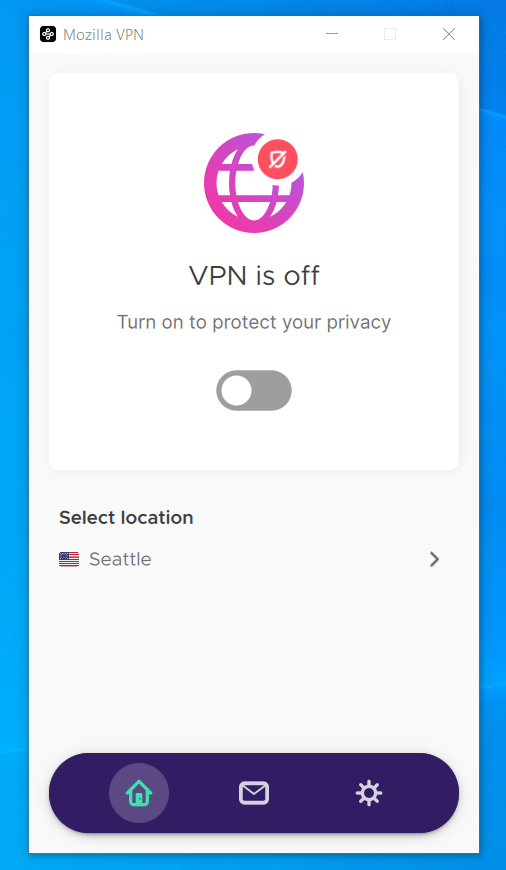 Mozilla VPN homescreen
Mozilla VPN homescreen
-
User-Friendly Interface: The app boasts a clean design, centered around a prominent on/off switch and a location selection option. The straightforward layout makes it accessible even for beginners.
-
Server Network: With over 500 servers, Mozilla VPN provides decent coverage, though its approximately 40 country locations are fewer than some competitors. Notably, it utilizes Mullvad VPN’s network.
-
Multi-Hop Connection: This feature, not commonly found in VPNs, routes traffic through multiple servers, enhancing privacy by further obscuring your IP address.
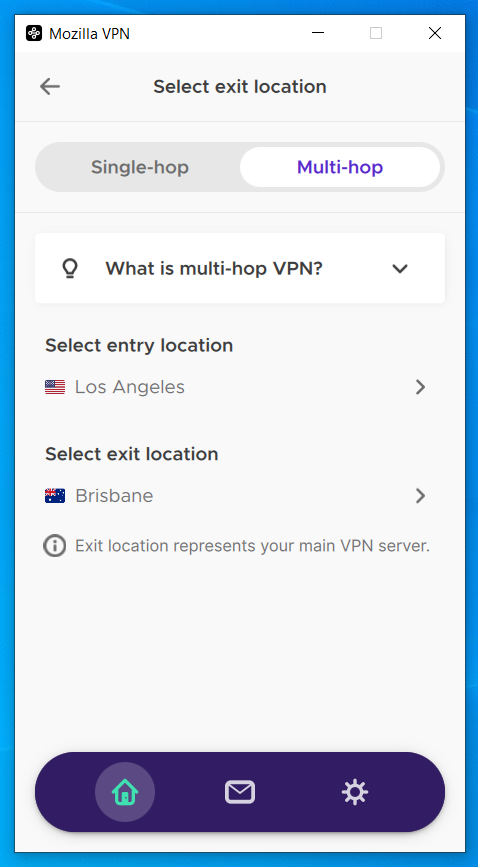 Mozilla VPN multi-hop feature
Mozilla VPN multi-hop feature
- Privacy Features: Standard features like ad, tracker, and malware blocking are included.
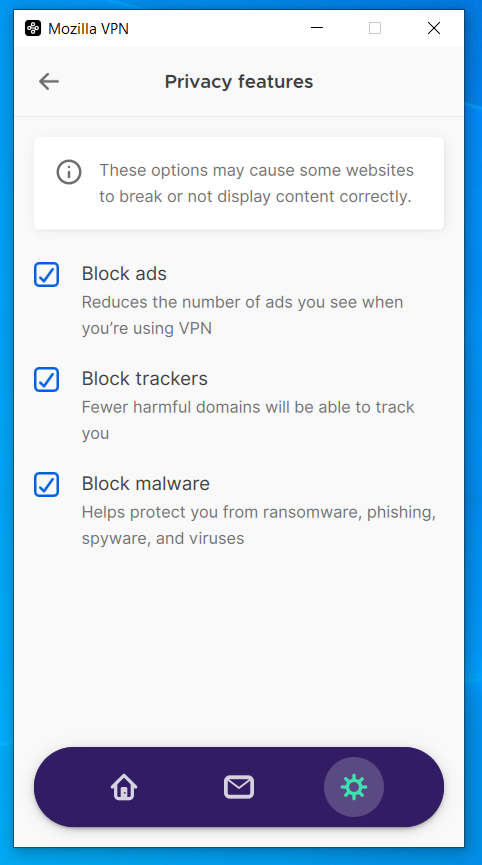 Mozilla VPN privacy features
Mozilla VPN privacy features
-
Split-Tunneling (App Exclusions): This feature allows you to select specific apps to bypass the VPN, useful for activities requiring full internet speed, such as gaming.
-
Always-On Kill Switch: Prioritizing security, Mozilla VPN enforces a kill switch that automatically suspends internet traffic if the VPN connection drops.
-
Firefox Integration: Firefox users benefit from features like Multi-Account Containers, enabling different tabs to connect to separate VPN servers, enhancing browsing flexibility.
Performance
Mozilla VPN’s speed performance is average. Tests across various global servers revealed download speeds averaging 38% and upload speeds at 47% of baseline speeds. While not matching the fastest VPNs like Hotspot Shield, ExpressVPN, or NordVPN, it’s adequate for casual browsing and streaming. However, a significant drawback is its inability to unblock major streaming platforms like Netflix, Amazon Prime, Disney Plus, or Hulu. This suggests a focus on privacy and security over geo-restricted content access.
Security and Privacy
Mozilla VPN employs AES-256 bit encryption and exclusively uses the WireGuard protocol, prioritizing speed and security. However, this limits customization options for advanced users. The service excels in privacy, demonstrating no DNS leaks in tests. Mozilla’s privacy policy affirms no storage of online user activity logs, though some data, such as initial IP address, operating system, and hardware configuration, are collected. Two independent security audits by Cure53 further validate Mozilla VPN’s security posture.
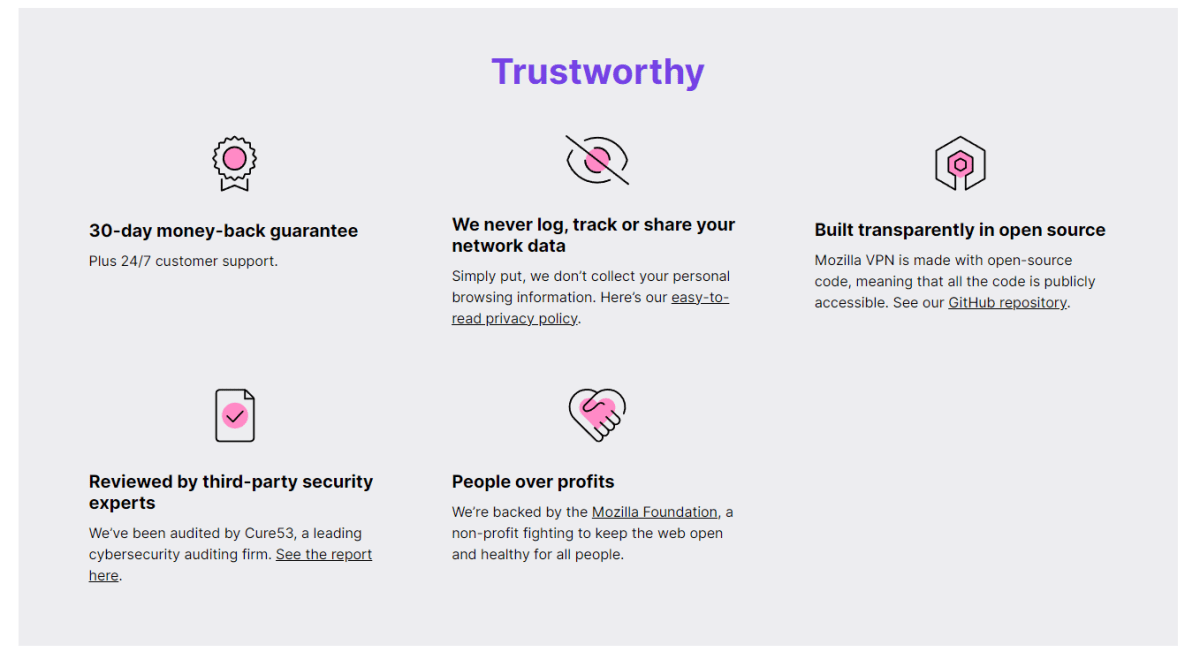 Mozilla logo
Mozilla logo
Conclusion
Mozilla VPN is a solid, albeit not top-tier, VPN service. Its strengths lie in its user-friendly interface, robust privacy features, and alignment with Mozilla’s commitment to internet freedom. However, its limited server network, inability to unblock streaming services, and higher price compared to Mullvad (the underlying service) are notable drawbacks. While not the best choice for streaming or bypassing geo-restrictions, it’s a viable option for privacy-conscious users seeking a simple and secure VPN solution, especially those within the Mozilla ecosystem.



